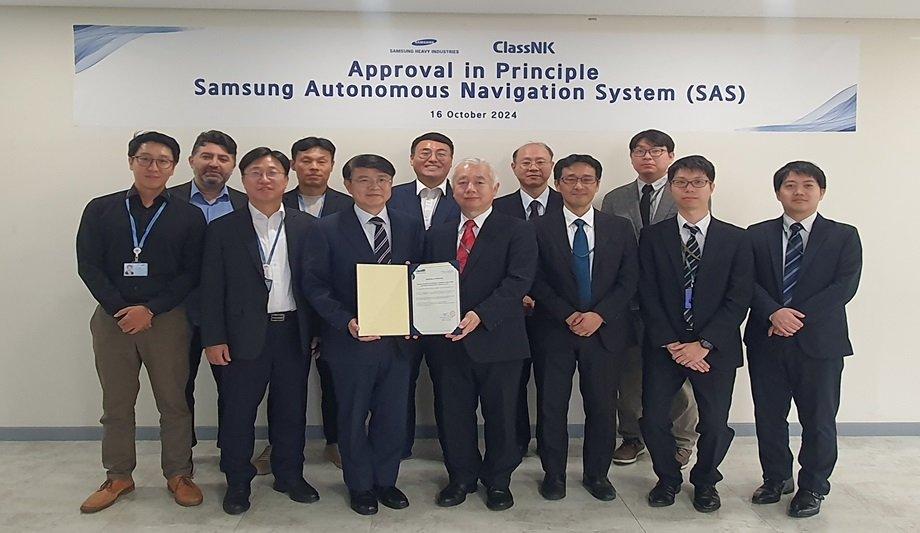ClassNK has issued an Approval in Principle (AiP) for the Autonomous Navigation Assistance System - ‘SAS’ developed by Samsung Heavy Industries, Co., Ltd.
Samsung Autonomous Navigation Assistance System (SAS) is a partially Autonomous Navigation System (ANS) including the functions of situational awareness through sensor fusion and electronic navigational chart information, collision and grounding risk assessment, and collision and grounding avoidance.
Design, installation, and maintenance
ClassNK is involved in various demonstration projects and continuously works to develop necessary safety standards, to support the development and implementation of automated/autonomous operation technologies from a safety perspective.
Based on this experience, ClassNK released its ‘Guidelines for Automated/Autonomous Operation of ships’ which comprehensively summarises the requirements for each stage of conceptual design, design development, installation, and maintenance during the operation of automated/autonomous operation technologies.
Samsung Autonomous Navigation Assistance System
ClassNK will continue to improve the environment for the use of automated/autonomous operation
For the concept design of the Samsung Autonomous Navigation Assistance System (SAS), ClassNK conducted its safety review based on the requirements of ‘Guidelines for Automated/Autonomous Operation of ships’. Having confirmed its compliance with the requirements, including clarification of tasks to be automated, and backup systems, ClassNK issued the AiP.
ClassNK is also in the process of examining SAS for Technology Qualification (TQ) based on ‘Guidelines for Technology Qualification’. ClassNK will continue to improve the environment for the use of automated/autonomous operation technologies by providing standards for advanced initiatives and technological verification.
Approval in Principle (AiP)
At the initial stage of designing or before the specific target ship to be implemented is decided, the design is examined based on the existing regulations such as international conventions and ship classification rules, and an Approval in Principle (AiP) is issued as proof of conformity with requirements.
It also prevents rework of regulatory aspects in the post-process, shortens the examination time at the time of class registration, and can be used as a technical basis for external appeal of the design status.










